
During many years of photographing wildlife, and birds, in particular, I have developed a passion for both studying their behaviour and photographing them at waterholes in our national parks and elsewhere.
I have witnessed any number of dramas unfolding on a daily basis: fierce interspecies rivalry, ruthless predation, and struggles for survival. I find time spent at waterholes to be infinitely more rewarding for photography than driving around game reserves for hours at a time.
During a visit to the Kgalagadi Transfrontier Park in the Northern Cape in March 2019, I was once again privileged to witness and photograph some remarkable avian interaction.
The recipe in the park is simple: the waterholes and adjacent trees or shrubs attract large numbers of birds such as Cape Turtle Doves, Namaqua and Burchell’s sandgrouse, Yellow Canaries and sparrows and these in turn lure raptors, especially Lanner Falcons, Pale Chanting and Gabar goshawks and Tawny Eagles. Predators such as black-backed jackals also visit these lucrative locations to take advantage of the relatively easy pickings.
The Qubitje Quap waterhole, north of Nossob Camp, in particular is renowned for its resident black-backed jackals being serial hunters of the large flocks of Cape Turtle Doves and the Namaqua and Burchell’s sandgrouse that arrive to drink about two hours after sunrise.
Denne historien er fra January - February 2020-utgaven av African Birdlife.
Start din 7-dagers gratis prøveperiode på Magzter GOLD for å få tilgang til tusenvis av utvalgte premiumhistorier og 9000+ magasiner og aviser.
Allerede abonnent ? Logg på
Denne historien er fra January - February 2020-utgaven av African Birdlife.
Start din 7-dagers gratis prøveperiode på Magzter GOLD for å få tilgang til tusenvis av utvalgte premiumhistorier og 9000+ magasiner og aviser.
Allerede abonnent? Logg på

EXPLORING NEW HORIZONS
Keith Barnes, co-author of the new Field Guide to Birds of Greater Southern Africa, chats about the long-neglected birding regions just north of the Kunene and Zambezi, getting back to watching birds and the vulture that changed his life.
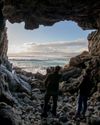
footloose IN FYNBOS
The Walker Bay Diversity Trail is a leisurely hike with a multitude of flowers, feathers and flavours along the way.
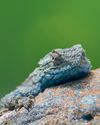
Living forwards
How photographing birds helps me face adversity
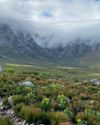
CAPE crusade
The Cape Bird Club/City of Cape Town Birding Big Year Challenge
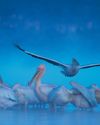
water & WINGS
WATER IS LIFE. As wildlife photographer Greg du Toit knows better than most.
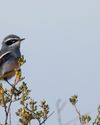
winter wanderer
as summer becomes a memory in the south, the skies are a little quieter as the migrants have returned to the warming north. But one bird endemic to the southern African region takes its own little winter journey.
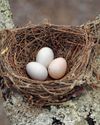
when perfect isn't enough
Egg signatures and forgeries in the cuckoo-drongo arms race

Southern SIGHTINGS
The late summer period naturally started quietening down after the midsummer excitement, but there were still some classy rarities on offer for birders all over the subregion. As always, none of the records included here have been adjudicated by any of the subregion's Rarities Committees.

flood impact on wetland birds
One of the features of a warming planet is increasingly erratic rainfall; years of drought followed by devastating floods. Fortunately, many waterbirds are pre-adapted to cope with such extremes, especially in southern Africa where they have evolved to exploit episodic rainfall events in semi-arid and arid regions. But how do waterbirds respond to floods in areas where rainfall - and access to water - is more predictable? Peter Ryan explores the consequences of recent floods on the birds of the Western Cape's Olifants River valley.
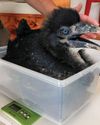
a star is born
It’s every producer’s dream to plan a wildlife television series and pick the right characters before filming.